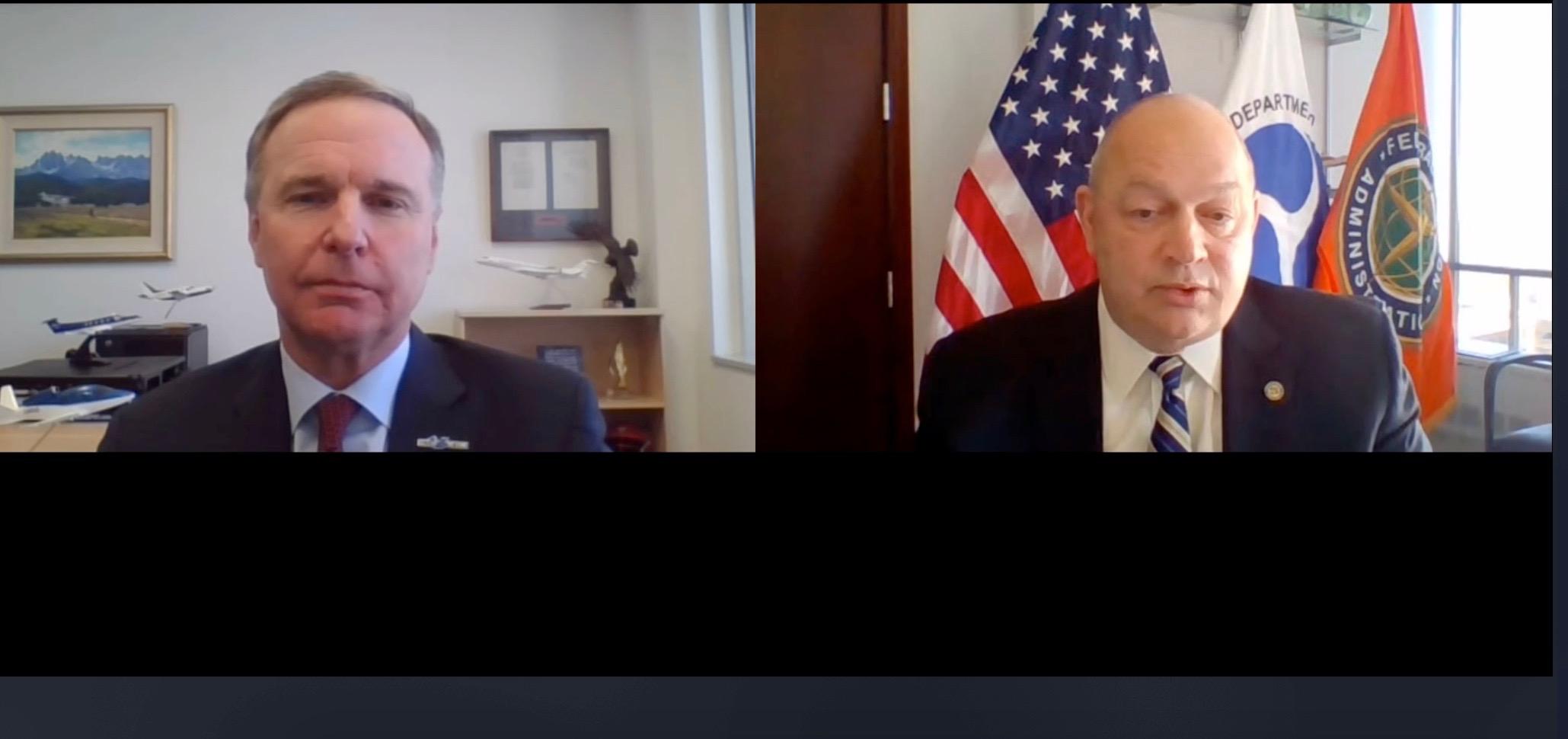
The FAA does not plan to prescribe across-the-board rules for every type of operator when it releases a proposed regulation that would require operators other than airlines to establish Safety Management Systems (SMS), according to Administrator Steve Dickson.
Under a final rule adopted in 2015, the FAA required that Part 121 airlines establish SMS practices across their organizations by March 2018. The agency is now developing a regulation that would apply to non-Part 121 operators; it expects to release a notice of proposed rulemaking in 2022.
During a virtual town hall event hosted by the National Business Aviation Association (NBAA) on March 3, Dickson responded to concern that a “one-size-fits-all approach” to SMS would be difficult to implement across all types of business aviation operators.
“NBAA is a huge supporter of SMS,” NBAA President and CEO Ed Bolen told Dickson. “We agree with you on how critical it is. But we do need to make sure that it is part of the culture, and with a very diverse community like we have, [it would be difficult] making sure that something for a single-airplane, single-pilot operation that is delivering mail in Alaska works for an international business aviation operator with a fleet of aircraft.”
“I realize that business aviation has some unique challenges, and one size does not fit all when it comes to safety programs,” answered Dickson. “But I think we can all agree that the basic concepts of SMS—having a safety policy, performing safety risk assessments, taking action on the results and communicating this to all levels of the organization—are very positive improvements to safety culture, even in a variety of the ways they are scaled and implemented across different operators.
“The approach that we want to take is not prescriptive,” added Dickson, but will necessarily be based on standards expressed in a new a Part 5 that was added to federal aviation regulations with the SMS rule in 2015 as well as Annex 19 (Safety Management) of the International Civil Aviation Organization.
The FAA administers a voluntary SMS program for non-Part 121 operators, MROs and training organizations. But the lack of an enforceable system was cited by NTSB board members during a Feb. 9 probable-cause hearing into the crash of a Sikorsky S-76B helicopter that killed the pilot and eight passengers, including retired professional basketball great Kobe Bryant and his daughter, in January 2020.
The helicopter operator—Island Express Helicopters—had a voluntary SMS system, but its oversight by management was lacking, the NTSB found. The safety board recommends that all Part 135 air medical, air taxi, charter and on-demand operators implement SMS and flight data monitoring programs.
“While the [Island Express Helicopters’] program appeared to check all the boxes for how an SMS should operate, the reality was that SMS was not a way of life—it was not really ingrained into the safety culture from the CEO’s office down to the shop floor,” Dickson said. “These things take leadership and they need to permeate the entire organization ... I think this is a lesson learned for all of us.”





